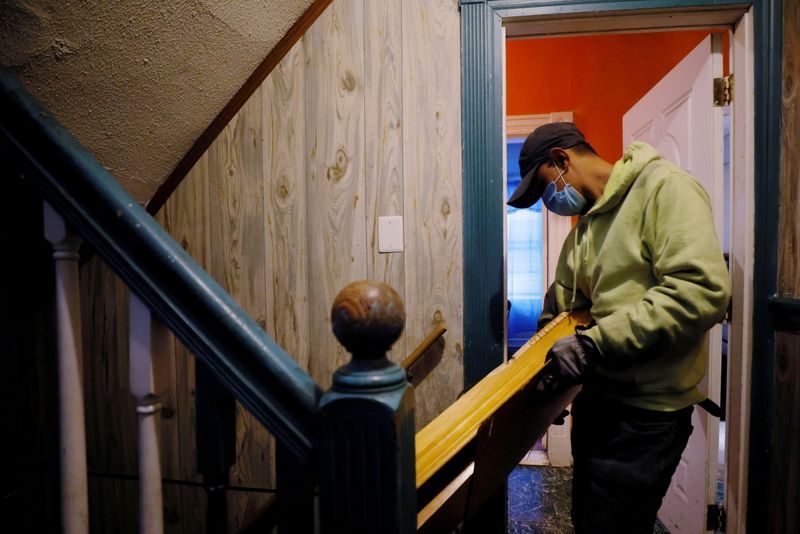By Michelle Price
WASHINGTON (Reuters) -The U.S. consumer watchdog on Monday finalized new protections for homeowners who are struggling to make mortgage payments due to the pandemic, but said foreclosures will be allowed to resume in coming months once those extra protections have been met.
The Consumer Financial Protection Bureau (CFPB) in April proposed, among other measures, a new review process which it said at the time would generally prohibit mortgage servicers from starting a foreclosure until after Dec. 31, 2021.
The agency is trying to prevent a wave of foreclosures as 900,000 homeowners start to exit COVID-19 mortgage holiday or "forbearance" programs in coming months.
Reuters reported last week that the agency was due to proceed with the foreclosure rule but was expected to carve out certain groups of borrowers after industry groups said the proposal was too broad and beyond the CFPB's legal remit.
On Monday, CFPB Acting Director Dave Uejio told reporters the final rule "takes a different tact" from what was originally proposed. It will require that mortgage servicers temporarily undertake additional pre-foreclosure protections, including making a greater effort to reach out to struggling borrowers, but it will give servicers more flexibility, CFPB staff said.
As of June 14, an estimated 2 million homeowners were in forbearance, according to the Mortgage Bankers Association. Around 900,000 of those are due to expire later this year, real estate industry data provider Black Knight (NYSE:BKI) estimates.
Under the new rule, from Aug. 31, 2021 through Dec. 31, 2021, mortgage servicers may only refer 120-day delinquent accounts for foreclosure provided at least one of three new temporary safeguards has been met: the borrower has been thoroughly evaluated and there are no available options to avoid foreclosure; the property is abandoned; the borrower is unresponsive to servicer outreach.
The rule will also allow mortgage servicers to offer streamlined loan modifications, which cannot increase borrowers payments; it also doesn't require borrowers to submit full paperwork. That flexibility will allow servicers to get borrowers into affordable mortgage payment plans faster, with less paperwork, the CFPB said.

The new required protections do not apply to non-primary residences, borrowers who were more than 120 days behind on their mortgage before March 1, 2020, and small mortgage services.
Speaking to reporters, CFPB officials said they were focused on preventing a cliff of foreclosures and ensuring an "orderly transition" to a normal housing market, but that in some cases foreclosures would resume once the forbearance programs expired.
